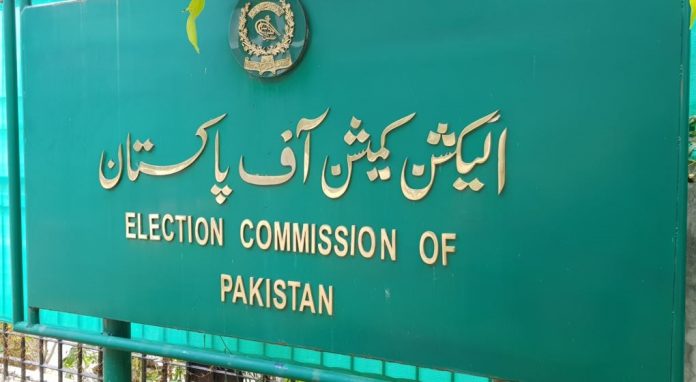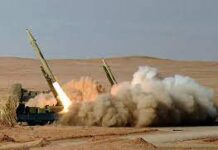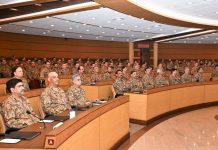
In Karachi, the country’s main commercial city, around 80 % of markets dealing in bulk goods were closed, said Atiq Mir, president of the All Karachi Traders Alliance, which represents hundreds of markets in the city. “Government policies have created mistrust in trade and industry,” said Mir, who added that traders were already struggling with corrupt tax officials demanding bribes.
Similar strikes were observed in other big business centers including Lahore, Rawalpindi, Islamabad, Faisalabad and Multan.
In Karachi, calm prevailed around the main electronics market in the old city that would normally be bustling on a Saturday with traders selling everything from mobile phones to televisions, refrigerators and air conditioners. A popular textiles market on Tariq Road in another part of the city was also closed as traders, already struggling to attract customers hit by a sliding rupee and inflation running at around 9%, shut up shop for the day.
“The new condition of the national identity card on purchases of 50,000 rupees or more has created harassment among the people,” Mir said. “We want zero tax on small retailers. Sales tax should be limited to the manufacturing sector,” he said.
There are hundreds of trader associations in Pakistan, and millions of traders who participate in the retail sector. However, while some groups rallied hard around the strike call, there was no clarity about how big the scope of the strike actually was as the main chambers of commerce and industry, from Karachi to Lahore and other cities of Punjab, did not support the call.
Critics also said the strike is nothing more than an attempt by traders to blackmail the government into maintaining status quo and keeping the economy undocumented to avoid income taxes. On discussions on social media, citizens criticised the striking traders and accused them of evading their tax liabilities by refusing to let the government document their activities.
In Lahore, all large shopping hubs remained shut. Mall Road, Anarkali market, Shah Alam market and Bernadette road, Rehman Galliyan, Railway Road and Akbar Mandi remained shut for all business activities. In a press conference, traders from the All Pakistan Traders’ Union said that traders ‘from Karachi to Khyber’ had answered the call to observe the strike. “Traders have cast their referendum against the budget by observing this strike,” said Naeem Mir, secretary of the All Pakistan Traders’ Union. “Mr prime minister, we want to solve traders’ issues through talks. The government should sit us down with their representative to solve these issues,” he said. “If the government does not agree to our terms, then protest is the only way forward for us. We will not file our tax returns until our demands are met,” he threatened, adding that they might also start drive not to submit their commercial power bills.
A complete shutter-down strike was also observed in Islamabad after no government official contacted traders for any reconciliation effort. Ajmal Baloch, president of All Pakistan Traders Association, said that Federal Board of Revenue and government only hold talks with chambers and avoids smaller traders. He said 4.1 million registered traders have been ignored by government. “This shutter-down is not only being observed by traders, in fact, it also channels the voice of consumers,” he added.
In Khyber Pakhtunkhwa, Shangla, Kohistan, Battagram and Torghar traders observed a shutter-down strike against taxes and inflation. “We have observed a historical shutter-down strike in Battagram. The strike is against inflation and proposed taxes being imposed on traders. The government is trying destroy our businesses,” said Abdul Ghafar, president of Battagram’s trade union.
Shangla Trade Union President Hamidur Rehman said that the Malakand division has been a tax-free zone since Swat became a state but the current government has decided to impose taxes here as well. “We are already badly affected by terrorism and natural disasters and the imposition of taxes on us will be more than a disaster for us. Instead of conducting development work in our destroyed region, the government’s decision of imposing taxes and inflation is beyond my understanding,” he said.
The shutter-down strike was also observed in all parts of Malakand and Hazara divisions.
Traders across Balochistan also observed a complete shutter-down strike against inflation and increasing taxes on the traders’ community. In Quetta, all shops, shopping malls and business centres remained shut during the day. Because of the strike, roads in Quetta also wore a deserted look and the flow of traffic was thin.













